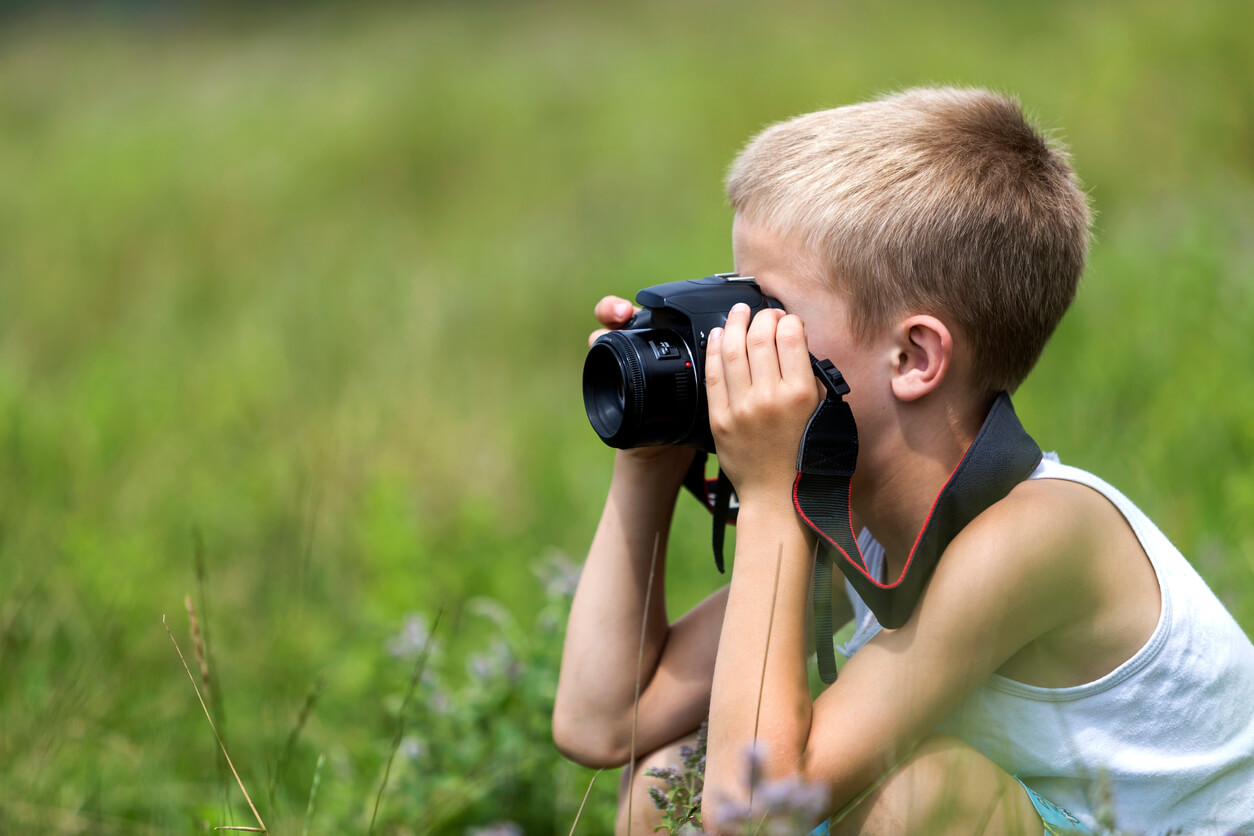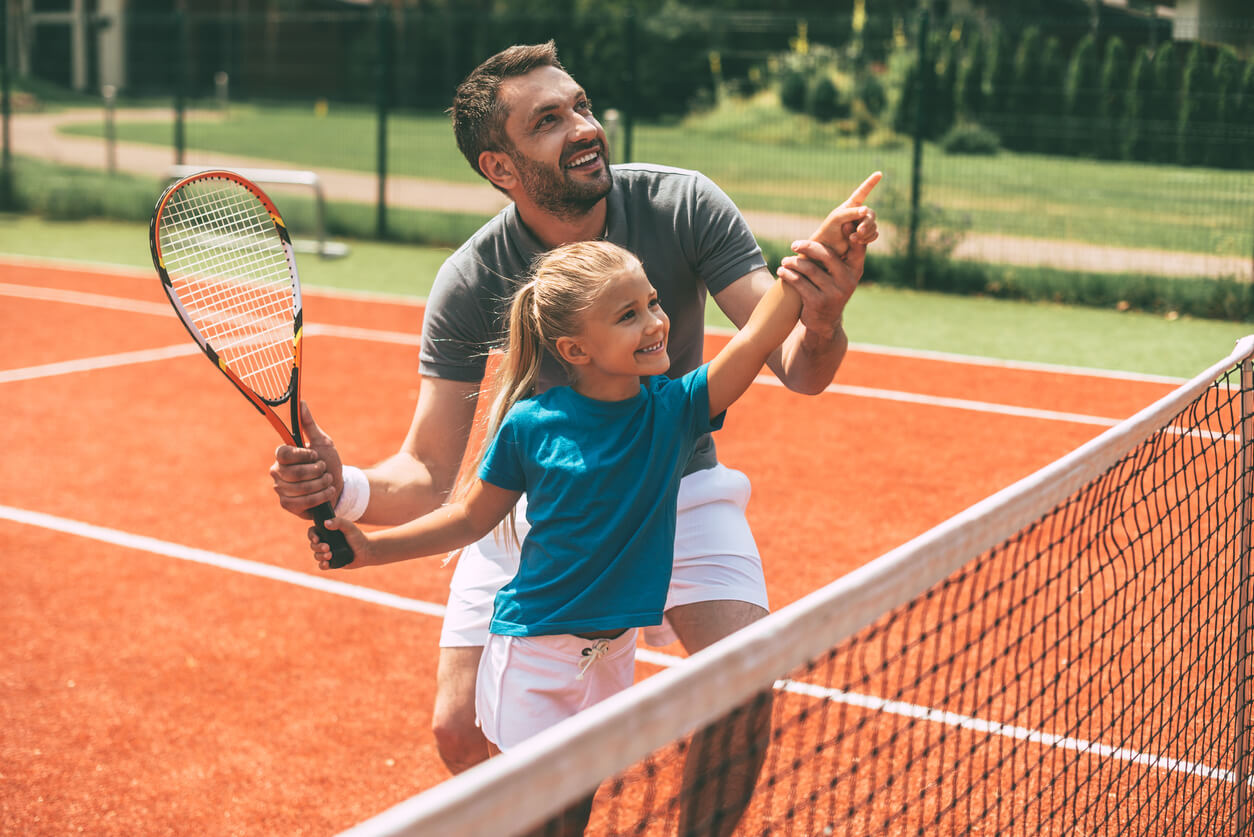The Importance of Children Having Hobbies


Written and verified by the psychologist Maria Fátima Seppi Vinuales
Hobbies and recreation allow children to use their time in other ways. Outside of homework, assessments, and school hours, it’s good for children to have other interests. Having hobbies is not only an “escape valve,” but they also offer many benefits. Let’s see what they are.
You may be interested in: Developmental Benefits of Children’s Hobbies
The benefits of children having hobbies
Beyond the entertainment they bring to children and the fact that they keep them away from screens, there are also other benefits of children having hobbies. Some of them are as follows:
- Having hobbies allows them to explore other interests, the use of their time, and even discover talents they didn’t know they had.
- It helps them relieve stress. Many people believe that stress is incompatible with childhood. However, this isn’t the case. We find more and more cases at an earlier age due to different reasons, such as obligations, adult agendas, or the dizzying pace at which we live nowadays.
- It’s a source of learning and creativity in a freer and less regulated way. It even reinforces other skills, such as staying focused or starting and finishing an activity, among others.
- It contributes to their self-esteem. This is because they feel useful and valuable doing something they enjoy. At the same time, they feel the satisfaction of accomplishment, which makes them more confident. Little by little, they have the desire to grow in that activity, to improve, and to empower themselves. Undoubtedly, it influences the way they see and feel about themselves.
- It allows them to establish relationships and contact with other people. Having a hobby and developing it in the company of other children gives them the possibility to relate with their peers and with those who share this hobby. They bring multiple social and psychological skills into play. Beyond the fact that hobbies can be individual, they always have a social component through which children learn to relate to others, respect rules, and, sometimes, work as a team.
- It facilitates the development of a sense of belonging and contributes to the construction of identity.
You may be interested in: 6 Great Hobbies for Children

Recommendations to support children having hobbies
Some keys that we can take into account to accompany our children in the development of their hobbies are the following:
Listen to them and talk to them
All hobbies pose their challenges, their joys, and their pains. Therefore, it’s important to listen to children, to know what they feel and what their goals are. In addition, giving them support and talking with them will surely strengthen the bond between the adult and the child.
Be flexible
While it’s true that hobbies require perseverance and commitment to be able to develop them and take advantage of their power, it’s equally important that we can sometimes be unstructured. For example, if one day your child tells you that they don’t want to go skateboarding today because they’re too tired, you can understand and allow them to take a break. The idea is that they enjoy their hobby and that they don’t only associate it with sacrifice or punishment.
Teach them that they can change their hobbies
Many children, after some time of practicing an activity or sport, don’t want to give it up because they feel sorry or feel guilty. Also because they believe that their parents may become angry. However, it’s important to allow children to do any activity and not just one at a time. Ideally, they should be able to develop their passion and interest in what they like, as our tastes and interests can change over time.
Encourage them to explore
In relation to the previous point, it’s important for them to know that we don’t always find a hobby or a group right away. Sometimes it’s hard to let go or feel comfortable. In this regard, they don’t need to commit to a place or a hobby for life. Rather, we should give them the freedom and the space to tell us if they’re not enjoying their hobby and we can look for other options together with them.

Be a facilitator
For a child to develop a hobby, in the beginning, they need someone to support them. In this regard, adults will have to dedicate time and effort to take them somewhere. We’ll even have to spend money on certain expenses.
Hobbies, not obligations
Finally, it’s important not to impose the logic of the adult world on that of the child. First of all, we must listen to what the child wants to do and allow them to express their tastes and interests. Secondly, we must be attentive to our own behavior. Many times, we regulate and make demands on our children in regard to their hobbies in such a way that they end up losing the enjoyment of what they do. A hobby is a hobby, not a job.
Sometimes, when the child does very well in something, we adults look for a secondary benefit. We want them to stand out, start training more intensely, participate in tournaments or competitions, etc. However, that which was secondary becomes the protagonist, and leisure and enjoyment, which were the central essences of the hobby, are left behind.
Finally, we also have to forget about those hobbies that we had planned for them. Many times, we imagine that they’ll play soccer like us or that they’ll be interested in art, but in reality, they may be more into fishing.
In this regard, we shouldn’t impose our own tastes. It’s about letting them be and do what they choose. At the same time, we’ll have to accept that they won’t always want to follow our own path or meet our expectations.
Hobbies and recreation allow children to use their time in other ways. Outside of homework, assessments, and school hours, it’s good for children to have other interests. Having hobbies is not only an “escape valve,” but they also offer many benefits. Let’s see what they are.
You may be interested in: Developmental Benefits of Children’s Hobbies
The benefits of children having hobbies
Beyond the entertainment they bring to children and the fact that they keep them away from screens, there are also other benefits of children having hobbies. Some of them are as follows:
- Having hobbies allows them to explore other interests, the use of their time, and even discover talents they didn’t know they had.
- It helps them relieve stress. Many people believe that stress is incompatible with childhood. However, this isn’t the case. We find more and more cases at an earlier age due to different reasons, such as obligations, adult agendas, or the dizzying pace at which we live nowadays.
- It’s a source of learning and creativity in a freer and less regulated way. It even reinforces other skills, such as staying focused or starting and finishing an activity, among others.
- It contributes to their self-esteem. This is because they feel useful and valuable doing something they enjoy. At the same time, they feel the satisfaction of accomplishment, which makes them more confident. Little by little, they have the desire to grow in that activity, to improve, and to empower themselves. Undoubtedly, it influences the way they see and feel about themselves.
- It allows them to establish relationships and contact with other people. Having a hobby and developing it in the company of other children gives them the possibility to relate with their peers and with those who share this hobby. They bring multiple social and psychological skills into play. Beyond the fact that hobbies can be individual, they always have a social component through which children learn to relate to others, respect rules, and, sometimes, work as a team.
- It facilitates the development of a sense of belonging and contributes to the construction of identity.
You may be interested in: 6 Great Hobbies for Children

Recommendations to support children having hobbies
Some keys that we can take into account to accompany our children in the development of their hobbies are the following:
Listen to them and talk to them
All hobbies pose their challenges, their joys, and their pains. Therefore, it’s important to listen to children, to know what they feel and what their goals are. In addition, giving them support and talking with them will surely strengthen the bond between the adult and the child.
Be flexible
While it’s true that hobbies require perseverance and commitment to be able to develop them and take advantage of their power, it’s equally important that we can sometimes be unstructured. For example, if one day your child tells you that they don’t want to go skateboarding today because they’re too tired, you can understand and allow them to take a break. The idea is that they enjoy their hobby and that they don’t only associate it with sacrifice or punishment.
Teach them that they can change their hobbies
Many children, after some time of practicing an activity or sport, don’t want to give it up because they feel sorry or feel guilty. Also because they believe that their parents may become angry. However, it’s important to allow children to do any activity and not just one at a time. Ideally, they should be able to develop their passion and interest in what they like, as our tastes and interests can change over time.
Encourage them to explore
In relation to the previous point, it’s important for them to know that we don’t always find a hobby or a group right away. Sometimes it’s hard to let go or feel comfortable. In this regard, they don’t need to commit to a place or a hobby for life. Rather, we should give them the freedom and the space to tell us if they’re not enjoying their hobby and we can look for other options together with them.

Be a facilitator
For a child to develop a hobby, in the beginning, they need someone to support them. In this regard, adults will have to dedicate time and effort to take them somewhere. We’ll even have to spend money on certain expenses.
Hobbies, not obligations
Finally, it’s important not to impose the logic of the adult world on that of the child. First of all, we must listen to what the child wants to do and allow them to express their tastes and interests. Secondly, we must be attentive to our own behavior. Many times, we regulate and make demands on our children in regard to their hobbies in such a way that they end up losing the enjoyment of what they do. A hobby is a hobby, not a job.
Sometimes, when the child does very well in something, we adults look for a secondary benefit. We want them to stand out, start training more intensely, participate in tournaments or competitions, etc. However, that which was secondary becomes the protagonist, and leisure and enjoyment, which were the central essences of the hobby, are left behind.
Finally, we also have to forget about those hobbies that we had planned for them. Many times, we imagine that they’ll play soccer like us or that they’ll be interested in art, but in reality, they may be more into fishing.
In this regard, we shouldn’t impose our own tastes. It’s about letting them be and do what they choose. At the same time, we’ll have to accept that they won’t always want to follow our own path or meet our expectations.
All cited sources were thoroughly reviewed by our team to ensure their quality, reliability, currency, and validity. The bibliography of this article was considered reliable and of academic or scientific accuracy.
- García-Piña, Corina Araceli (2008). Riesgos del uso de internet por niños y adolescentes. Estrategias de seguridad. Acta Pediátrica de México, 29(5),272-278.[fecha de Consulta 27 de Agosto de 2022]. ISSN: 0186-2391. Disponible en: https://www.redalyc.org/articulo.oa?id=423640313006
- Ramírez, Mónica Teresa González, & Vanegas-Farfano, Minerva. (2013). Los pasatiempos y sus efectos en el manejo del estrés y el burnout. Summa psicológica UST (En línea), 10(2), 21-28. Recuperado em 27 de agosto de 2022, de http://pepsic.bvsalud.org/scielo.php?script=sci_arttext&pid=S0719-448×2013000200002&lng=pt&tlng=es.
This text is provided for informational purposes only and does not replace consultation with a professional. If in doubt, consult your specialist.








